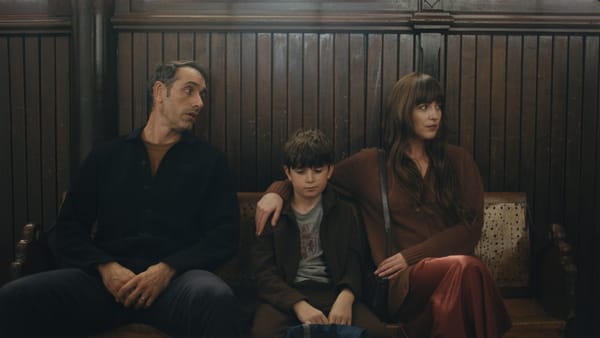Amid the Laughs, Jesse Eisenberg’s 'A Real Pain' Finds Genuine Humanity

In a year dominated by bold, all-caps cinema—like Furiosa, Dune: Part Two, and The Substance—A Real Pain takes a different approach. It trades bombast for quiet intimacy, delivering a story that’s just as profound and emotionally resonant as its flashier counterparts, proving that subtlety can hit just as hard.
Jesse Eisenberg’s new comedy-drama, written and directed by the actor-turned-filmmaker, stars Eisenberg himself alongside Kieran Culkin as a pair of estranged cousins who reconnect for a bittersweet journey through Poland, spurred by the death of their beloved grandmother.
The flashy headline here is Kieran Culkin’s phenomenal performance. If you thought Roman Roy in Succession was the role Culkin was born to play, wait until you meet Benji Kaplan. Sloppy, exasperating, tender, and somehow endlessly endearing, Benji is the chaotic, beating heart of A Real Pain. Eisenberg has handed Culkin a character so layered and alive that it feels tailor-made for him to deliver his best work yet.

Benji is a symphony of contradictions—warm and affable one moment, sharp-tongued and grouchy the next; brimming with joy in the morning, ripping self-righteous rants by afternoon. Yet Culkin brings all these dissonant notes into harmony, crafting a character who feels strikingly real. Benji is a man desperate for love and connection, but too wounded, selfish, and emotionally stunted to sustain it. It’s a raw, deeply human performance that’s impossible to look away from.
But while Culkin commands the spotlight, Eisenberg’s performance as his cousin, David Kaplan, is quietly remarkable. David carries the hallmarks of Eisenberg’s most iconic roles: neurotic, introverted, and socially awkward. Yet here, those familiar traits are tempered by a profound sense of grief and vulnerability, making David feel more grounded than we’ve seen from Eisenberg in years.
While Culkin delivers the film’s more attention-grabbing moments, Eisenberg’s performance carries a quiet depth that steadily builds as the story unfolds. His comedic timing is as sharp as ever, but it’s the emotional weight he brings—particularly in a few standout scenes of raw, unguarded intimacy—that is truly memorable. Eisenberg may not demand your attention in the same way Culkin does, but his portrayal is just as strong.

Equally compelling is how A Real Pain immerses itself in the weight of generational history and trauma. The backbone of Benji and David’s story is a Jewish Heritage tour through Warsaw and the Polish countryside, where they visit sites that memorialize Jewish life and loss—including a sobering visit to the Majdanek concentration camp.
The film walks a delicate tonal line, drawing both poignant drama and deadpan humor from the inherent dissonance of a luxury tour set against the backdrop of historic atrocities. Eisenberg doesn’t shy away from the gravity of these moments but uses their contrasts to explore the complexities of how we grapple with tragic history in the modern world.
At its core, A Real Pain is as much about the fractures and flaws of familial bonds as it is about their unshakable strength. Eisenberg captures the beauty and complexity of family relationships—the kind of love that is equal parts unconditional and maddening, yet ultimately, the most enduring love of all.
The film surprised me in ways I didn’t expect. While it’s no shock that Eisenberg and Culkin bring sharp comedic timing, I wasn’t prepared for how deeply funny—and deeply moving—it would be. Amid the humor lies a layered, emotionally resonant story that captures the odd rhythms of real life.
Eisenberg has a gift for illuminating life’s odd, unexpected moments—the ones where everything goes wrong, but somehow those screwups turn into cherished memories. A Real Pain doesn’t just deliver a funny, quirky travelog here; it evokes the messy, poignant beauty of being human.





